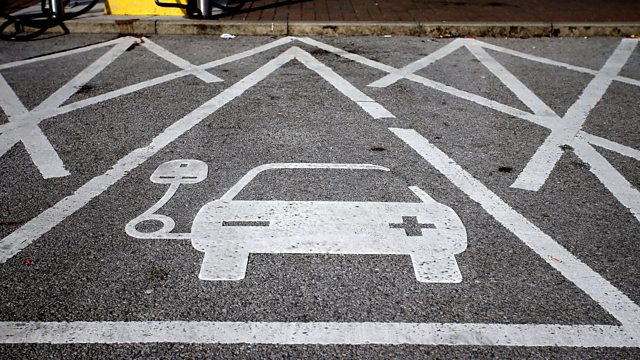
UK set to ban new petrol cars by 2030
The future is electric for the cars on our roads, but are we ready for a major change?
There is pressure on both the Conservatives and Labour to review their climate commitments following the Conservative win in the Uxbridge by-election - where the upcoming extension of London's Ultra Low Emission Zone was one of the big issues. But the government is currently sticking to its plan, supported by Labour, to ban sales of new petrol and diesel cars from 2030, with the sales of hybrid cars to be stopped from 2035. So, can we meet the target in time?
In a letter to the prime minister, a group of 43 Conservative MPs wrote the policy was 'unnecessary and unworkable'. They asked him to re-think the 2030 deadline, which comes five years before the EU ban, and warned it risked doing harm to the economy.
Fans of EVs have also raised concerns over the ban - are there enough charging points, and enough energy for those charging points, and if the government says goodbye to fuel tax, then how does it make up for it?
Today's Justin Webb speaks to Stuart Adam, senior economist at the IFS, Mike Hawes, the chief executive of the Society of Motor Manufacturers and Traders, Ken McMeikan, CEO of Moto Services, and Richard Holden, the Transport Minister. They spoke to Justin about whether EVs are accessible to everybody, if the national grid can support the change to EVs, and the price disparity between charging a car at home and at public charging points.
Photo credit: Peter Byrne/PA Wire
Podcast
-
![]()
Best of Today
Listen to selected highlights from the Today programme.

